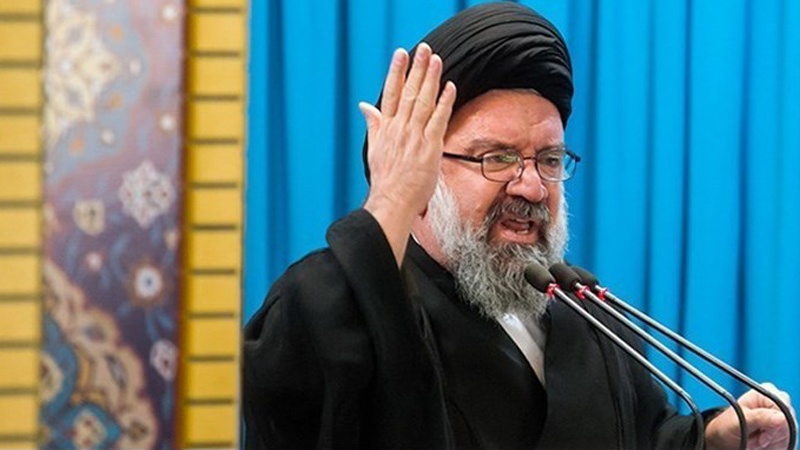Senior Cleric: Arrogant powers not trustworthy


Tehran’s interim Friday prayers Leader Ayatollah Seyyed Ahmad Khatami slammed Washington for its moves against the Joint Comprehensive Plan of Action (JCPOA), the nuclear deal between Tehran and the 5+1 group, describing the US and other hegemonic powers as “not trustworthy”.
According to Tasnim news agency, addressing a huge gathering of worshipers in Tehran on Friday, Ayatollah Khatami denounced the US Congress move to extend a legislation, known as Iran Sanctions Act (ISA), for 10 more years and said according to Iranian officials, the measure is a breach of the JCPOA.
“The world of arrogance is not trustworthy,” he said, adding that their aggressive nature is inconsistent with keeping promises.
The senior cleric said experience has shown that the hegemonic powers do not know anything about logic and ethics either.
He further stressed that if the legislation is implemented it will draw a decisive reaction from Iran, urging US President Barack Obama not to fall into the trap of the Zionists and sign it because signing this legislation would further discredit the US.
The legislation on ISA passed the US Senate by 99-0 on December 1. It passed the House of Representatives nearly unanimously in November, and congressional aides said they expected President Barack Obama would sign it.
While the JCPOA, the nuclear agreement between Iran and the 5+1 group (Russia, China, the US, Britain, France and Germany) came into force in January, some Iranian officials complain about the US failure to fully implement the accord.
Leader of the Islamic Ummah and Oppressed People Imam Sayyed Ali Khamenei said last month that if the sanctions were extended, Iran would definitely respond to it.







